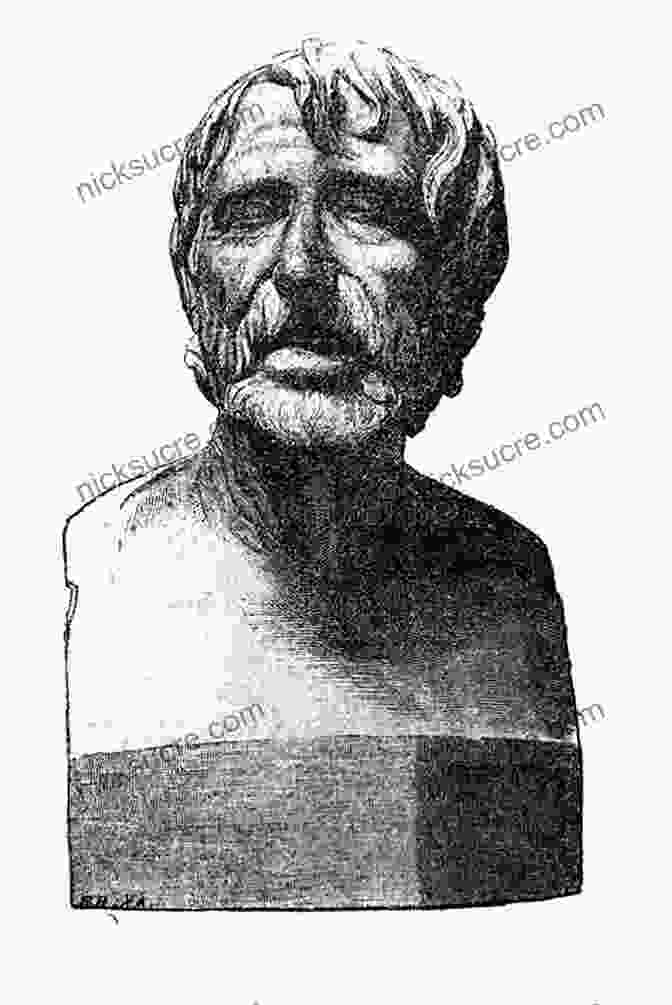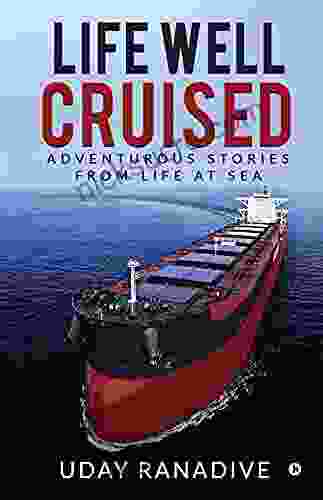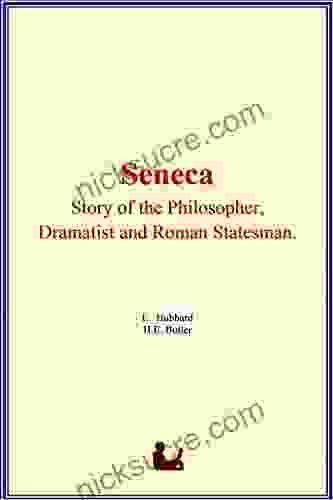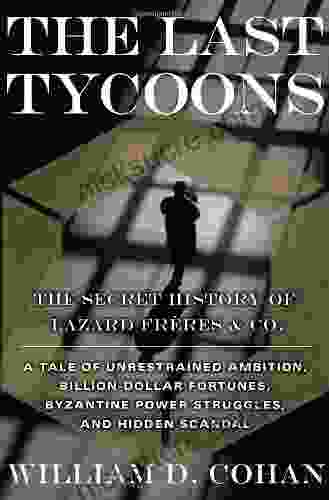The Extraordinary Saga of Seneca: Philosopher, Dramatist, and Roman Statesman


The annals of history are adorned with the names of exceptional individuals who have left an enduring legacy upon the world. Among these luminaries, Lucius Annaeus Seneca, commonly known as Seneca the Younger, stands as a beacon of philosophical wisdom, literary brilliance, and political acumen. As a philosopher, he grappled with profound questions of morality, virtue, and the pursuit of happiness. As a dramatist, he penned tragedies that continue to captivate audiences with their exploration of human nature and the complexities of the human condition. And as a statesman, he served as an influential advisor and tutor to the Roman emperor Nero, navigating the treacherous waters of imperial politics with both wisdom and integrity.
5 out of 5
| Language | : | English |
| File size | : | 447 KB |
| Text-to-Speech | : | Enabled |
| Screen Reader | : | Supported |
| Enhanced typesetting | : | Enabled |
| Print length | : | 124 pages |
Early Life and Education
Seneca was born in Corduba, in the Roman province of Hispania Baetica (modern-day Spain),around 4 BCE. His father was a wealthy Roman equestrian, and Seneca received an exceptional education in rhetoric, philosophy, and literature. He studied in Rome under the tutelage of some of the finest teachers of the time, including the Stoic philosopher Attalus and the rhetorician Marcus Papirius Fabianus. Seneca's sharp intellect and eloquence quickly earned him the admiration of his peers and mentors.
Philosophical Pursuits
At the heart of Seneca's intellectual endeavors lay his deep engagement with Stoicism, a philosophical school that emphasized reason, virtue, and the acceptance of fate. He believed that true happiness could only be achieved through the cultivation of inner strength and resilience, which allowed one to withstand the vagaries of fortune and maintain a sense of tranquility amidst life's challenges. Seneca's philosophical writings, such as his "Letters to Lucilius" and "On the Shortness of Life," are a testament to his profound understanding of human nature and his enduring influence on Western thought.
Literary Brilliance
In addition to his philosophical pursuits, Seneca was also a gifted dramatist. His tragedies, such as "Medea," "Thyestes," and "Oedipus," are renowned for their powerful characters, gripping plots, and insightful exploration of human emotions. Seneca's plays draw on themes of love, betrayal, and the consequences of excessive ambition, delving into the dark recesses of the human psyche with both insight and compassion. His dramatic works have been performed and studied for centuries, influencing countless writers and playwrights.
Political Career
Despite his philosophical and literary inclinations, Seneca also played a significant role in Roman politics. He served as a senator and was appointed as a quaestor under Emperor Claudius. However, his political career took a more prominent turn when he became a tutor to the young Nero, who ascended to the throne in 54 CE. Seneca, along with the Praetorian prefect Burrus, served as Nero's advisors and exerted considerable influence over his early reign, promoting policies of clemency and moderation.
The Perils of Power
Seneca's tenure as an advisor to Nero was not without its challenges. The young emperor's character proved to be volatile and unpredictable, and as his reign progressed, he became increasingly tyrannical. In 62 CE, Burrus died, leaving Seneca as the sole advisor to a ruler who was growing increasingly erratic and tyrannical. Seneca attempted to temper Nero's excesses and guide him towards a more virtuous path, but his influence gradually waned as Nero's darker impulses took hold.
Downfall and Death
Seneca's position became increasingly precarious as Nero's paranoia and cruelty intensified. In 65 CE, he was implicated in a failed conspiracy against the emperor and was ordered to take his own life. Seneca faced his fate with Stoic fortitude, choosing to end his life by severing his arteries in a warm bath. His death marked the end of an extraordinary life that had been dedicated to the pursuit of wisdom, virtue, and the service of the state.
Legacy and Influence
Despite his tragic end, Seneca's legacy continued to inspire and influence generations to come. His philosophical ideas, literary brilliance, and political insights have had a profound impact on Western thought and culture. His works have been translated into numerous languages and continue to be read and studied by philosophers, scholars, and general readers alike. Seneca's enduring influence is a testament to the enduring power of his wisdom and the timeless relevance of his ideas.
The life and legacy of Seneca the Younger are a testament to the human capacity for intellectual brilliance, literary genius, and political engagement. As a philosopher, he provided profound insights into the nature of human existence and the pursuit of happiness. As a dramatist, he created unforgettable characters and explored the complexities of human emotions through his compelling tragedies. And as a statesman, he navigated the treacherous waters of imperial politics with both wisdom and integrity. Seneca's extraordinary journey, from his humble beginnings in Spain to his tragic end in Rome, serves as a reminder of the enduring power of ideas, the importance of virtue, and the enduring relevance of the human spirit.
5 out of 5
| Language | : | English |
| File size | : | 447 KB |
| Text-to-Speech | : | Enabled |
| Screen Reader | : | Supported |
| Enhanced typesetting | : | Enabled |
| Print length | : | 124 pages |
Do you want to contribute by writing guest posts on this blog?
Please contact us and send us a resume of previous articles that you have written.
 Best Book Source
Best Book Source Ebook Universe
Ebook Universe Read Ebook Now
Read Ebook Now Digital Book Hub
Digital Book Hub Ebooks Online Stores
Ebooks Online Stores Fiction
Fiction Non Fiction
Non Fiction Romance
Romance Mystery
Mystery Thriller
Thriller SciFi
SciFi Fantasy
Fantasy Horror
Horror Biography
Biography Selfhelp
Selfhelp Business
Business History
History Classics
Classics Poetry
Poetry Childrens
Childrens Young Adult
Young Adult Educational
Educational Cooking
Cooking Travel
Travel Lifestyle
Lifestyle Spirituality
Spirituality Health
Health Fitness
Fitness Technology
Technology Science
Science Arts
Arts Crafts
Crafts DIY
DIY Gardening
Gardening Petcare
Petcare Kevin Sullivan
Kevin Sullivan Nick Jans
Nick Jans Veronica Jeans
Veronica Jeans Catherine Cookson
Catherine Cookson Susan Mayse
Susan Mayse Mark Matthews
Mark Matthews Richard S Ruback
Richard S Ruback Laila Fares
Laila Fares John Edmund Delezen
John Edmund Delezen Miki Raver
Miki Raver Shirley Abbott
Shirley Abbott Jeremiah Lynch
Jeremiah Lynch Clive Davis
Clive Davis Mark Stevens
Mark Stevens David Skarica
David Skarica Lee G Bolman
Lee G Bolman Erica N Walker
Erica N Walker Ralph Ellison
Ralph Ellison Dan Shapiro
Dan Shapiro Amy Cooper Hakim
Amy Cooper Hakim
Light bulbAdvertise smarter! Our strategic ad space ensures maximum exposure. Reserve your spot today!

 Jan MitchellAdventurous Stories From Life At Sea: Courageous Sailors, Daring Rescues, and...
Jan MitchellAdventurous Stories From Life At Sea: Courageous Sailors, Daring Rescues, and... Garrett PowellFollow ·11.7k
Garrett PowellFollow ·11.7k Federico García LorcaFollow ·8.3k
Federico García LorcaFollow ·8.3k George OrwellFollow ·2.6k
George OrwellFollow ·2.6k Elliott CarterFollow ·8.5k
Elliott CarterFollow ·8.5k Esteban CoxFollow ·19.2k
Esteban CoxFollow ·19.2k Grant HayesFollow ·19.1k
Grant HayesFollow ·19.1k Ben HayesFollow ·2.5k
Ben HayesFollow ·2.5k Alexandre DumasFollow ·10.4k
Alexandre DumasFollow ·10.4k

 Edwin Blair
Edwin BlairKilling A King: The Assassination Of Yitzhak Rabin And...
## The Assassination Of Yitzhak Rabin And The...

 Carlos Fuentes
Carlos FuentesDeath in Benin: Where Science Meets Voodoo
In the West African nation of Benin, death...

 Ernest J. Gaines
Ernest J. GainesA Comprehensive Guide to Managing Your Girlfriend's White...
White guilt, a complex and...

 Jon Reed
Jon ReedThe Notorious Life and Times of Pablo Escobar, the...
Pablo Escobar, the...

 Juan Rulfo
Juan RulfoTrainwreck: My Life As An Idiot
My life has been a trainwreck. I've made...

 Christian Barnes
Christian BarnesFirst Words Childhood In Fascist Italy: A Haunting Memoir...
First Words Childhood In...
5 out of 5
| Language | : | English |
| File size | : | 447 KB |
| Text-to-Speech | : | Enabled |
| Screen Reader | : | Supported |
| Enhanced typesetting | : | Enabled |
| Print length | : | 124 pages |










